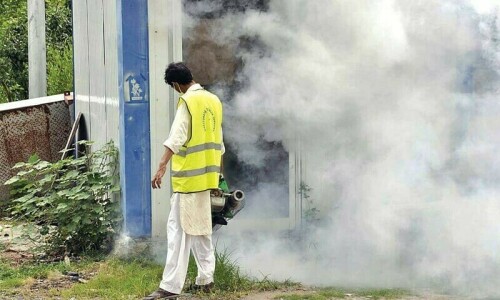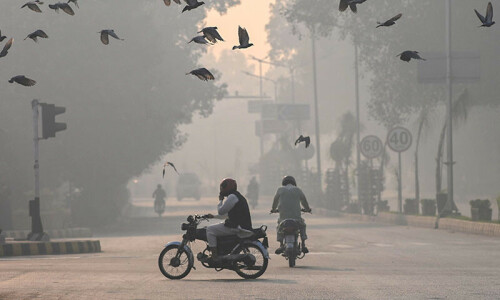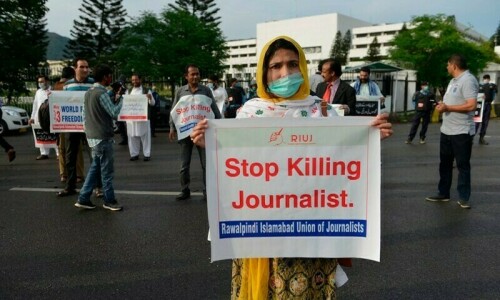THE inevitable exodus has begun. Thousands of desperate flood victims are making their way to Karachi.
According to reports, 3,000 to 4,000 are arriving every day from the hinterland, leaving behind wrecked lives — their homes submerged, standing crops destroyed and cattle drowned. They come with little more than the clothes on their backs and the hope that the vast city will provide them refuge and succour.
It is believed that 50,000 have already converged on the metropolis and are being given shelter in various camps set up by the provincial government. Half of them are reportedly staying in Malir district, an area that is home to many indigenous Sindhi and Baloch communities.
It is human nature for people to depend on extended family and tribal linkages especially when they are in distress. Balochistan and Sindh are among the hardest hit by the floods, with the latter on course for yet more destruction as surging waters from rivers up north travel downwards to the sea. Urban areas in other parts of the country too are likely to see internally displaced people from rural areas massing on their outskirts because cities are always better equipped in terms of shelter, health facilities, employment opportunities, etc.
Editorial: Looming shortages
In Sindh, history and vested interests have made the urban-rural divide an ethnic issue — one that has played out through the decades in violent politics of identity. Indeed, one can often see an ugly racism towards Sindh-speaking people who have been reduced to a small minority in Pakistan’s largest city since it began to be settled, ironically enough, by ‘outsiders’ exactly 75 years ago.
While such attitudes are condemnable under any circumstance, it is also a fact that Karachi’s creaky infrastructure comes under further strain from internal migration. At the same time, it is every Pakistani’s constitutionally protected right to move freely and reside anywhere in the country.
There is only one way to prevent urban centres from coming under further pressure, especially in times of natural calamities like floods which, with climate change upon us, are sure to occur more frequently. After the initial phase of rescue and relief is over, the authorities must embark on a long-term reconstruction plan that involves the development of secondary cities as well as measures to enhance flood resilience in rural areas.
If it is viable, people would much rather go back home than live as an economically and socially deprived cohort in urban centres.
Published in Dawn, August 31st, 2022












































